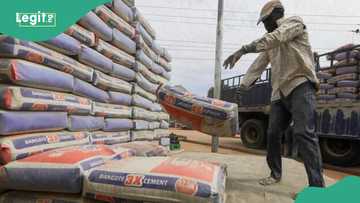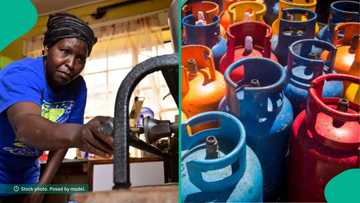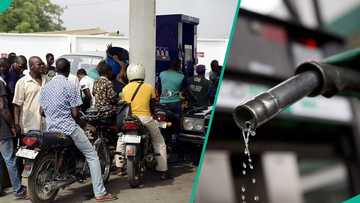Imported Petrol Now Cheaper Than Dangote Fuel as Landing Cost Drops to N840 Per Litre
- Fresh competition may be brewing in Nigeria’s fuel market as the cost of imported petrol drops below Dangote's depot rate
- Data released by the Major Energies Marketers Association of Nigeria shows that petrol landing cost dropped to N840 per litre
- The new price reflects a wide disparity from Dangote’s depot rate, which is about N887 per litre
Pascal Oparada, a reporter for Legit.ng, has over ten years of experience covering technology, energy, stocks, investment, and the economy.
The landing cost for imported petrol has dipped from N849.61 to N839.97 per litre.
The Major Energies Marketers Association of Nigeria (MEMAN) disclosed this in a recent publication.
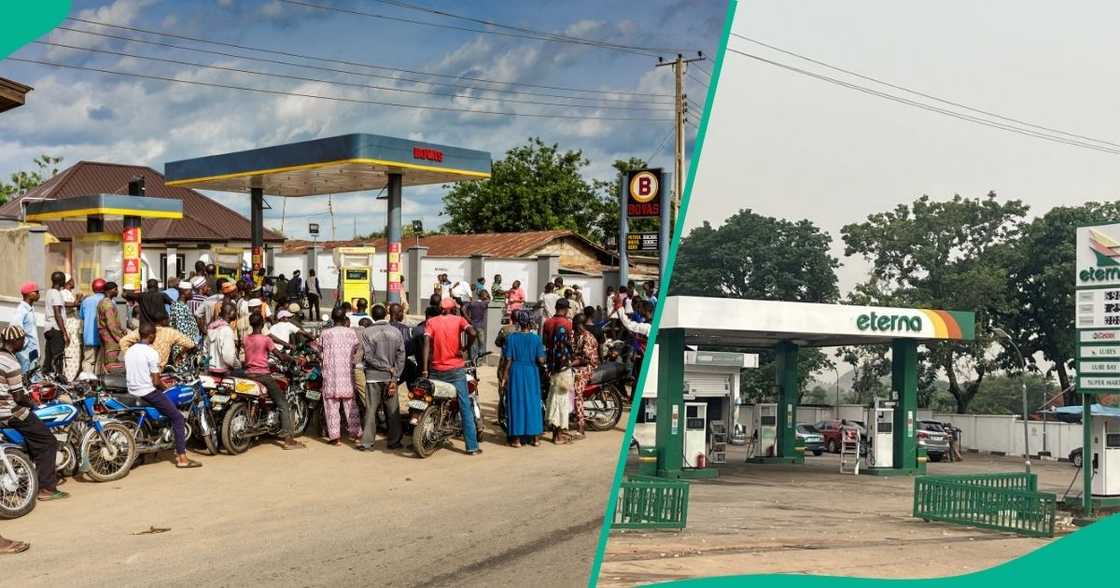
Source: Getty Images
Petrol landing cost drops
MEMAN data shows the landing cost declined from N849.61 per litre on October 13 to N839.97 by October 21, 2025, its lowest in months.
The current landing cost is lower than the price sold by Africa’s largest refinery, Dangote Refinery.
Current landing cost cheaper than Dangote’s price
Checks by Legit.ng show that the mega refinery’s depot price for petrol stood at N877 per litre as of October 23, 2025.
Other depots averaged around N890 per litre, according to data from PetroleumPriceNG.
However, despite the drop in the landing cost of petrol, depot owners still sell petrol at high prices.
Findings show that the current landing cost released by MEMAN is N37 lower than Dangote Refinery’s N877 per litre.
Fuel stations hike petrol prices
A prior report by Legit.ng disclosed that Dangote Refinery increased its depot prices from N820 to N877 per litre without notice.
Investigations show that major filling stations such as Mobile now sell petrol at N915 per litre, while the Nigerian National Petroleum Company Limited (NNPC) sells at N928 per litre at its retail stations.
Other filling stations such as MRS, Heyden, AP, and other Dangote partner stations sell at N920 per litre or above, showing the effect of Dangote’s N877 per litre gantry price.
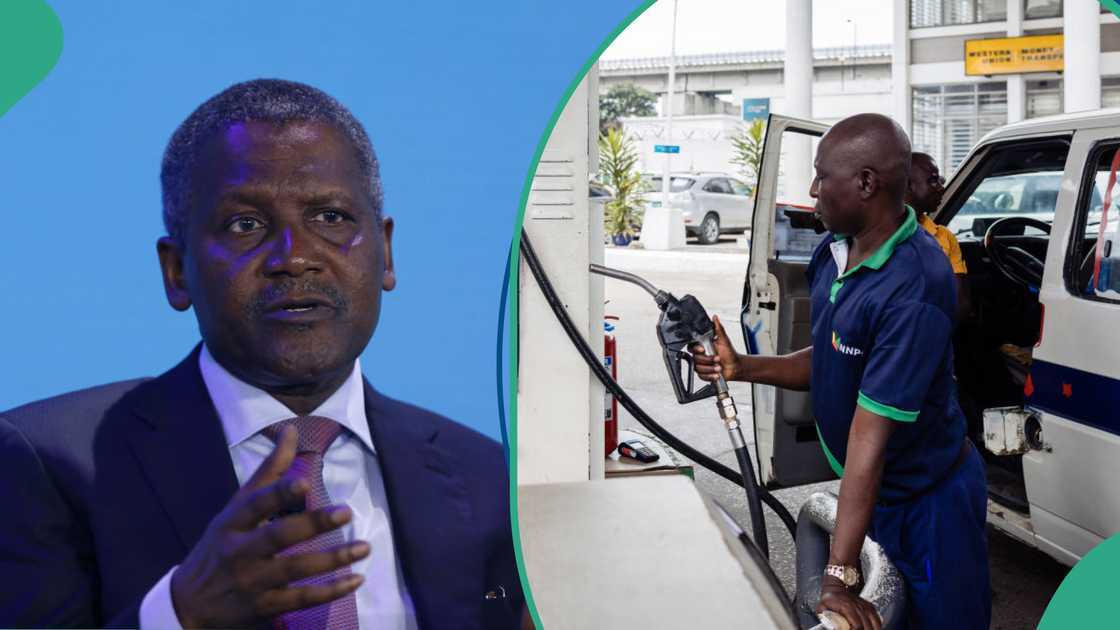
Source: Getty Images
Expert berate Dangote, depot owners
Analysts say the price gap exposes deeper issues in Nigeria’s oil market.
They question why imported fuel is cheaper than locally refined products
“It is an anomaly that imported petrol actually costs less than locally refined ones,” Osas Igho, a financial analyst, told Legit.ng on a call.
“This means that major marketers will continue to import petrol and other refined products if Dangote Refinery does not lower its prices,” he said.
Marketers, Dangote Refinery in war of words
Meanwhile, earlier, independent marketers cried out that Dangote Refinery has refused to sell petrol to them despite paying several weeks ahead.
According to multiple marketers who spoke on condition of anonymity, the refinery’s recent policy changes have left them stranded, despite advance payments made over two weeks ago.
“We’ve paid for products but haven’t been allowed to load. It looks like the refinery only wants to serve select marketers,” one frustrated bulk buyer said.
However, the Refinery, through its Vice President of Oil and Gas, Edwin Devakumi, refuted the marketers’ claim, asking them to come and load at the facility.
Devakumi said the refinery has a feedstock of about 310 million litres of petrol available for lifting.
The standoff highlights growing tension between Dangote Refinery and marketers over control of Nigeria’s petrol supply chain.
West Africa moves to have unified fuel price
Legit.ng earlier reported that West African countries are moving toward a unified fuel pricing system in a historic step that could reshape the region’s energy landscape.
The development comes as Africa’s richest man, Aliko Dangote, finalizes plans to expand his Lagos-based refinery’s capacity from 650,000 to 1.4 million barrels per day (bpd), a move that positions Nigeria as the region’s new petroleum pricing powerhouse.
At the inaugural West African Refined Fuel Market Conference in Abuja, regulators from across the subregion agreed to harmonize pricing and quality standards for petroleum products.
Proofreading by Kola Muhammed, copy editor at Legit.ng.
Source: Legit.ng


